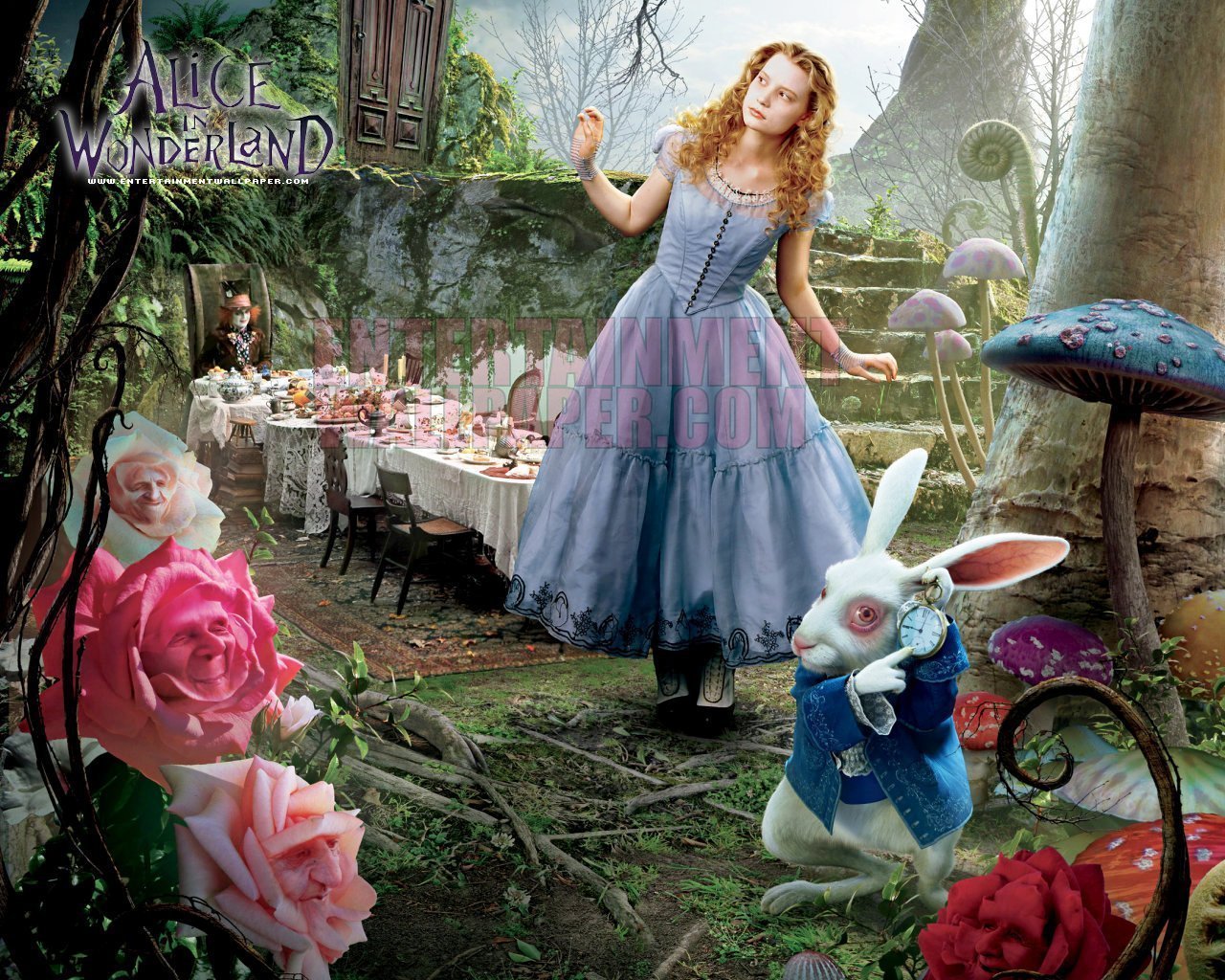Alice Rosenblum Video Leaks – A Digital Reflection
The way digital happenings spread can feel like a sudden wave, and sometimes, a name like Alice Rosenblum becomes part of those conversations that ripple across the internet. It's a curious thing, this speed at which moments, perhaps private ones, can suddenly find themselves in public view, shaping discussions and raising eyebrows, so to speak. This kind of event, you know, really gets people talking, and it makes us think about the vastness of the online world we all share. It's almost as if a single piece of content can become a focal point for so many different viewpoints and feelings, which is quite something to consider.
When information moves at such a quick pace online, it often sparks a whole lot of conversation, doesn't it? People begin to share thoughts, ask questions, and form opinions, and this collective interaction shapes the narrative around whatever has surfaced. You see it happen all the time, frankly, where a snippet of something can become a big topic, prompting everyone to weigh in. It's a rather fascinating aspect of our connected lives, how quickly news, or perhaps a perceived piece of news, can travel from one corner of the internet to every other corner, nearly in an instant.
So, this discussion aims to explore the broader picture surrounding such digital moments, using the idea of "Alice Rosenblum video leaks" as a way to think about how personal content, online visibility, and public reaction all intertwine. We're not here to talk about specific events, because, as a matter of fact, our focus is on the general concepts that arise when personal digital content becomes a topic of wider interest. It’s a chance to consider the bigger forces at play in our digital lives, and what it means for anyone whose life might intersect with the public internet.
Table of Contents
- Who Is Alice Rosenblum?
- What Happens When Online Content Spreads?
- How Do Digital Footprints Impact Individuals?
- Can We Control Our Digital Story?
- The Broader Conversation Around Digital Content
- What Does "Alice Rosenblum Video Leaks" Suggest About Online Safety?
- Community and Discourse in the Digital Space
- Looking Ahead – The Future of Personal Content Online
Who Is Alice Rosenblum?
When a name like Alice Rosenblum comes up in connection with online discussions, it naturally makes one wonder about the person involved. In the vast digital landscape, individuals often find themselves discussed, sometimes without their direct input, and their perceived identity takes shape through various online interactions. You know, it's a bit like how some figures, perhaps like Alice Tian, who works in the electronic game industry, gain a public presence through their professional activities. Or, in a more abstract sense, how "Alice and Bob" are used in cryptography as general placeholders for communicating parties, showing how a name can represent a broader concept, in a way.
For the purpose of this discussion, thinking about "Alice Rosenblum" allows us to explore the general experience of an individual whose name becomes linked to online content, whether that content is widely shared or simply a topic of conversation. It's less about a specific person and more about the idea of someone whose digital presence becomes a talking point. So, while we consider the implications of "Alice Rosenblum video leaks," we are essentially looking at the general challenges and realities that come with being visible in the online world, which is something many people can relate to, really.
Personal Details & Bio Data
| Name | Alice Rosenblum |
| Digital Footprint | Varies, depending on online activity |
| Online Presence | Potentially through social platforms, forums, or shared content |
| Public Perception | Shaped by shared information and community discussions |
| Key Digital Interaction | Any engagement with online content or communities |
This table provides a general framework for understanding how an individual's details might be perceived in the digital sphere, rather than providing actual facts about a specific Alice Rosenblum. It highlights how someone's identity can be constructed and interpreted based on the digital traces they leave, or that are left about them. You see, the internet has a way of creating these public personas, sometimes with a fair bit of accuracy, sometimes less so, and that's a pretty important thing to grasp.
- Subhashree Sahu Leak Video
- Duckduckgo Vs Ecosia
- Willow Ryder Trans
- Amber Rose Current Boyfriend
- Aditi Mistry Nips
What Happens When Online Content Spreads?
When online content, like the idea of "Alice Rosenblum video leaks," starts to spread, it usually follows a rather quick path. Someone shares something, then others pick it up, and soon it’s everywhere, or so it seems. This process often starts on platforms where people gather to exchange ideas and information, much like Zhihu, which is a big place for sharing knowledge and insights. On such sites, a piece of content can quickly become a topic for questions and answers, drawing in many different voices and perspectives, which is quite a powerful thing, honestly.
The way these conversations unfold can be quite dynamic. People might react with surprise, or curiosity, or even strong opinions, and these reactions then fuel further sharing and discussion. It's a bit like a chain reaction, where one person's comment leads to another's, and before you know it, a full-blown conversation has developed around the subject. This collective engagement, you know, is a significant part of how online narratives are built, shaping how something, even the idea of "Alice Rosenblum video leaks," is understood by a wider audience. It truly shows the collective power of online communities, doesn't it?
Moreover, the initial content might be just a small piece, but the discussions around it can grow to be much larger, adding layers of interpretation and speculation. This expansion of dialogue is a key characteristic of how digital information moves, turning a single item into a much broader topic for public consideration. In fact, this is often how something gains widespread attention, transforming from a simple post into a subject of collective thought and feeling, which is a rather interesting phenomenon to observe, actually.
How Do Digital Footprints Impact Individuals?
The digital traces we leave behind, or that are created about us, have a real impact on individuals. Every interaction, every piece of content, every mention online contributes to a kind of digital story about a person. When discussions about something like "Alice Rosenblum video leaks" emerge, it highlights how quickly an individual's online presence can become a public matter, sometimes without their direct consent or control. This can be a rather unsettling experience, to be honest, knowing that parts of your life might be open for public viewing and comment.
General concerns about privacy are a big part of this conversation. People often worry about what information about them is out there, and who can access it. For instance, issues like those encountered with LOL's built-in voice function, where one person can hear but not be heard, touch upon the technical side of online interaction, but they also hint at the broader question of control over one's digital voice and presence. It's pretty clear that these small technical glitches can sometimes reflect bigger issues about how we manage our personal information online, which is something we all need to be mindful of.
The sheer volume of data available online means that even seemingly small pieces of information can, in some respects, be pieced together to form a picture of an individual. This cumulative effect of digital footprints means that once something is out there, it tends to stay out there, influencing how others perceive a person. It's a bit like an ongoing public record, which is why the idea of "Alice Rosenblum video leaks" can feel so impactful, because it suggests a lasting impression in the digital world, for better or worse, you know.
Can We Control Our Digital Story?
Controlling one's digital story in this connected age is a rather significant challenge. Once content, like the theoretical "Alice Rosenblum video leaks," finds its way onto the internet, it becomes incredibly difficult to fully manage its spread or how it is interpreted. The internet has a way of remembering things, and what is posted today could resurface years later, which is a pretty sobering thought for many people. It’s almost as if the digital realm has its own memory, a very long one, that just keeps everything stored away.
The permanence of online data is a key aspect of this struggle. Even if something is removed from its original source, copies or mentions of it might persist on other platforms, in archives, or in the collective memory of online communities. This means that for someone whose name becomes associated with something widely discussed, like "Alice Rosenblum video leaks," the implications can be long-lasting. It's a bit like trying to catch smoke, really; once it's out there, it's nearly impossible to gather it all back, which is a tough reality for anyone facing such a situation.
So, while individuals can take steps to protect their privacy and manage their online presence, complete control over one's digital narrative remains somewhat elusive. It requires a constant awareness of what is shared, by whom, and where, and even then, unexpected things can happen. This ongoing effort to shape one's online identity is a very real part of modern life, and it's something many people are trying to figure out as they go along, naturally.
The Broader Conversation Around Digital Content
The way we create and consume digital content has really changed how we interact with the world and each other. From playing games like those made by AliceSoft, which is quite a well-known erogame maker, to simply browsing through online forums, digital content is a huge part of our daily lives. This broad use of digital media, you know, makes us think about the different kinds of content that exist and how they affect us. It's not just about entertainment; it's about how information is shared, how stories are told, and how communities form around shared interests, which is pretty fundamental to our modern existence.
When we consider the idea of "Alice Rosenblum video leaks," it brings into focus the wider implications of all this digital sharing. It prompts us to think about the ethical considerations involved when private moments potentially become public content. This broader conversation extends beyond just individual instances; it touches upon the responsibility of platforms, the role of users in sharing information, and the general standards we hold for digital conduct. It’s a rather complex web of interactions, to be honest, with many different threads to pull on.
The nature of digital content also means that it can be easily copied, altered, and re-shared, sometimes without the original creator's intent or permission. This fluidity of digital information is both a strength and a weakness of the internet. It allows for quick dissemination of ideas, but it also makes it harder to control the narrative or protect personal content. So, while we enjoy the convenience and connection that digital content offers, we also need to be mindful of its inherent risks, which is something that tends to be overlooked in the everyday rush of online activity.
What Does "Alice Rosenblum Video Leaks" Suggest About Online Safety?
The idea of "Alice Rosenblum video leaks" naturally brings up important questions about online safety and security. In a world where so much of our lives happens online, protecting personal information is a big deal. We see this concern in various aspects of the digital landscape, like the discussion around GPU rental platforms, where people are looking for low-cost options but also need to be sure their data is safe. It’s pretty clear that the desire for convenience often clashes with the need for strong security measures, and that's a tension we all feel, more or less.
For individuals, the implications of private content becoming public can be quite significant. It can affect one's reputation, personal relationships, and even peace of mind. This potential for exposure means that users need to be more aware than ever about what they share, with whom, and under what circumstances. It's a bit like walking on a tightrope, actually, where one misstep could have far-reaching consequences. This heightened need for caution is a direct result of how easily digital content can spread, which is something we really need to get a handle on.
Moreover, the discussion around "Alice Rosenblum video leaks" can serve as a reminder that online safety isn't just about protecting against malicious attacks, but also about understanding the social dynamics of information sharing. It’s about recognizing that content, once released, can take on a life of its own, independent of the original intent. This calls for a thoughtful approach to our digital lives, considering the potential outcomes of our online actions and interactions, which is, honestly, a skill we are all still learning, pretty much.
Community and Discourse in the Digital Space
Online communities play a huge role in how discussions unfold, particularly when a topic like "Alice Rosenblum video leaks" gains traction. Platforms like Zhihu, where people share knowledge and insights, become central hubs for these conversations. In these spaces, individuals come together to exchange viewpoints, ask questions, and offer their interpretations of events or content. This collective sharing, you know, creates a kind of shared understanding, or sometimes, a shared confusion, around a subject, which is a rather interesting social dynamic to observe.
The way these communities engage with sensitive topics can vary a lot. Some discussions might be thoughtful and empathetic, while others could be critical or even harsh. This range of reactions shows the diverse nature of online discourse, where many different voices contribute to the overall narrative. It’s almost as if each person adds a little piece to a big puzzle, and the final picture depends on all those individual contributions. This collective shaping of opinion is a powerful force in the digital space, as a matter of fact, and it can really influence how a situation is perceived.
Ultimately, these community discussions reflect broader societal attitudes towards privacy, public figures, and the dissemination of personal content. The collective engagement around something like "Alice Rosenblum video leaks" is a window into how we, as a connected society, grapple with the complexities of living in a highly transparent digital world. It’s a chance for people to voice their thoughts and feelings, and in doing so, to contribute to the ongoing conversation about what it means to be online today, which is pretty important for all of us, honestly.
Looking Ahead – The Future of Personal Content Online
Looking to the future, the way we handle personal content online is likely to keep changing. As technology develops, so too will our methods for sharing and protecting our digital lives. We see innovations like the Alice mechanical keyboard, which is designed for comfort and ease of use, showing how tech can be made more human-friendly. This kind of thoughtful design, you know, could also extend to how we manage our personal information online, making it easier for people to control their own digital stories and feel more secure.
There's a growing awareness about digital privacy, and this will probably lead to new tools and practices that help individuals better manage their online presence. The discussions sparked by situations like the theoretical "Alice Rosenblum video leaks" contribute to this awareness, pushing for more robust solutions and clearer guidelines for online conduct. It’s pretty clear that as more of our lives move online, the demand for better ways to protect our personal content will only grow, which is a good thing, really, for everyone involved.
The ongoing conversation about what's acceptable to share and what should remain private will also continue to evolve within online communities. This collective dialogue helps to shape the social norms of the internet, guiding how people interact with and react to personal content. So, while challenges like "Alice Rosenblum video leaks" might arise, they also serve as catalysts for important conversations that help us all navigate the digital world with a bit more thought and care. It’s a journey we’re all on together, basically, figuring out the best path forward in this interconnected age.
This article has explored the general concepts surrounding online content, digital privacy, and public discourse, using the idea of "Alice Rosenblum video leaks" as a framework for discussion. We've considered how online content spreads, the impact of digital footprints on individuals, and the challenges of controlling one's digital narrative. The piece also touched upon broader conversations about digital safety and the evolving nature of community interactions in the online space, looking ahead to how personal content might be managed in the future.
- Robert De Niro Net Worth 2024
- Aditi Mistry Viral
- Ben Stiller Wife
- Hootan Mazloomi
- Best Iot Ssh P2p Free

Alice In Wonderland Alice In Wonderland Alice Disney - vrogue.co

“Alice in Wonderland” — Meaning, Themes, and Symbols

Alice In Wonderland Live Action Free at Tanlilianablog Blog